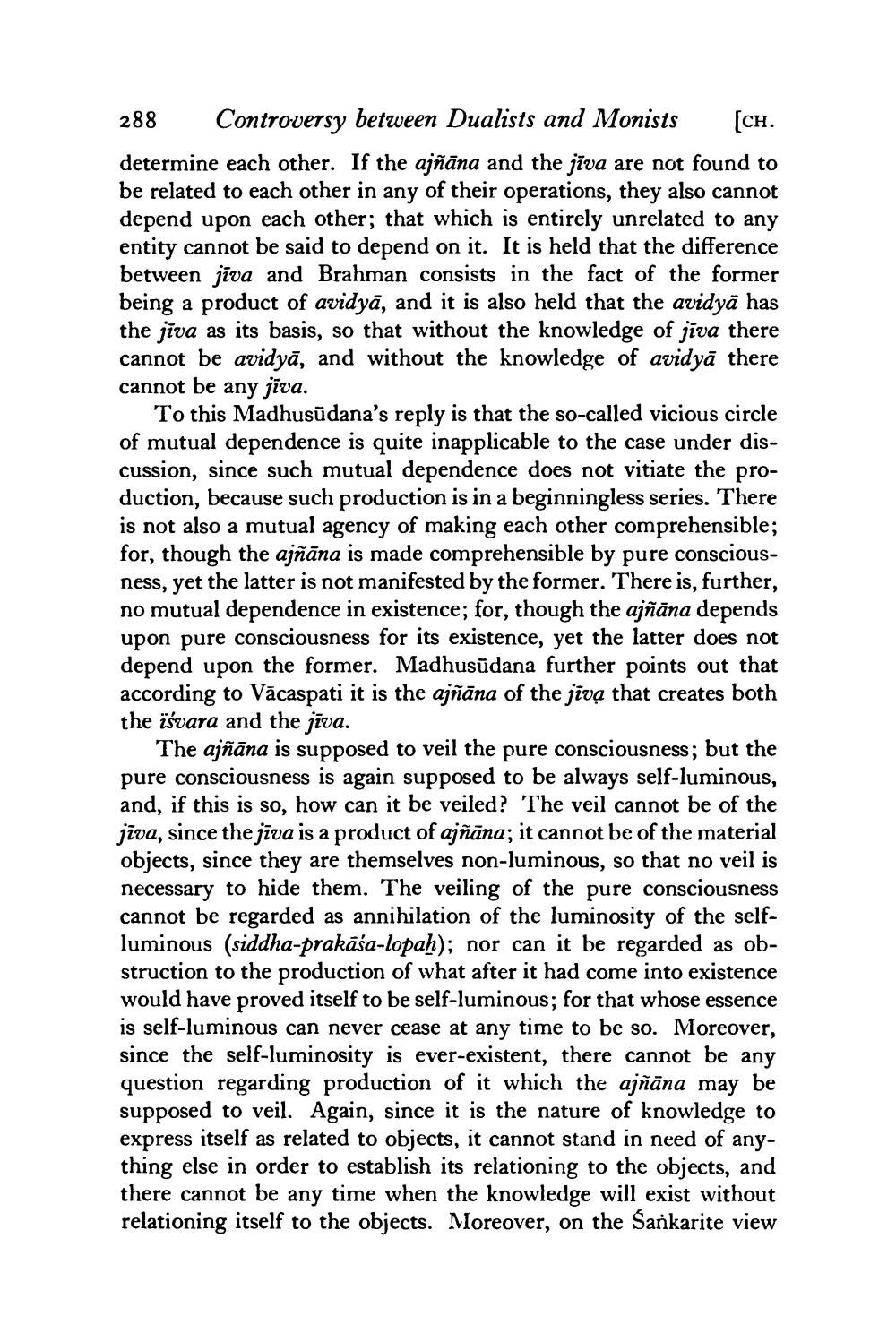________________
288 Controversy between Dualists and Monists (ch. determine each other. If the ajñāna and the jīva are not found to be related to each other in any of their operations, they also cannot depend upon each other; that which is entirely unrelated to any entity cannot be said to depend on it. It is held that the difference between jīva and Brahman consists in the fact of the former being a product of avidyā, and it is also held that the avidyā has the jīva as its basis, so that without the knowledge of jiva there cannot be avidyā, and without the knowledge of avidyā there cannot be any jīva.
To this Madhusūdana's reply is that the so-called vicious circle of mutual dependence is quite inapplicable to the case under discussion, since such mutual dependence does not vitiate the production, because such production is in a beginningless series. There is not also a mutual agency of making each other comprehensible; for, though the ajñāna is made comprehensible by pure consciousness, yet the latter is not manifested by the former. There is, further, no mutual dependence in existence; for, though the ajñāna depends upon pure consciousness for its existence, yet the latter does not depend upon the former. Madhusudana further points out that according to Vācaspati it is the ajñāna of the jiva that creates both the īśvara and the jīva.
The ajñāna is supposed to veil the pure consciousness; but the pure consciousness is again supposed to be always self-luminous, and, if this is so, how can it be veiled? The veil cannot be of the jīva, since the jīva is a product of ajñāna; it cannot be of the material objects, since they are themselves non-luminous, so that no veil is necessary to hide them. The veiling of the pure consciousness cannot be regarded as annihilation of the luminosity of the selfluminous (siddha-prakāśa-lopah); nor can it be regarded as obstruction to the production of what after it had come into existence would have proved itself to be self-luminous; for that whose essence is self-luminous can never cease at any time to be so. Moreover, since the self-luminosity is ever-existent, there cannot be any question regarding production of it which the ajñāna may be supposed to veil. Again, since it is the nature of knowledge to express itself as related to objects, it cannot stand in need of anything else in order to establish its relationing to the objects, and there cannot be any time when the knowledge will exist without relationing itself to the objects. Moreover, on the Sankarite view




